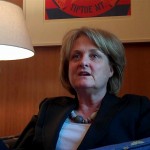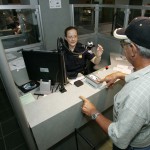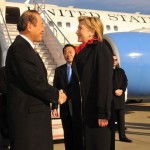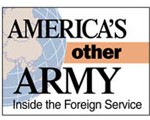Getting ‘Beaten Up’ for ‘Doing Things Right’
 Virginia Blaser, a newly minted American diplomat, was the duty officer at the U.S. Embassy in Madrid one weekend in 1993 when a call came in from two Midwest teachers who had brought a group of teenage students to Spain on their first trip abroad.
Virginia Blaser, a newly minted American diplomat, was the duty officer at the U.S. Embassy in Madrid one weekend in 1993 when a call came in from two Midwest teachers who had brought a group of teenage students to Spain on their first trip abroad.
A boy from the group was nowhere to be found, and the teachers wanted the embassy’s help to locate him before word about his disappearance reached his parents back home. Blaser alerted the police but couldn’t just sit and wait for something to happen.
“I remember thinking that the child might be out there hurt or scared,” she recalled. “So my husband and I literally walked the streets for two days, hoping that we’d find him just by sheer luck, but of course we didn’t. Eventually, we got a call from the police saying that they had been driving along a highway outside the city and found him — traumatized, dehydrated and sunburned.”
Now a senior Foreign Service officer and deputy chief of mission in Tanzania, Blaser has also served in Uganda, Mauritius, El Salvador, Britain and Belgium, while managing to raise four children. She started out as a consular officer, eager to help fellow Americans abroad. “It may not be a big deal for you when you see hundreds of people a year, but it is a big deal for a little lady from Des Moines who has never traveled overseas and has had her bags grabbed and has been pushed around,” Blaser said. “I love to be the one who can solve her problems…”
>> READ THE FULL STORY ON THE HUFFINGTON POST








